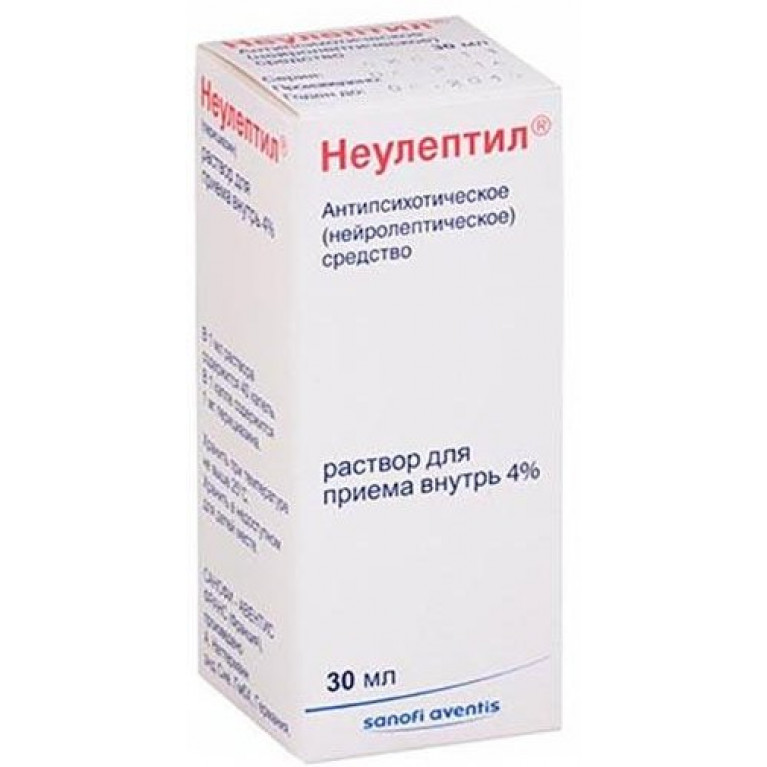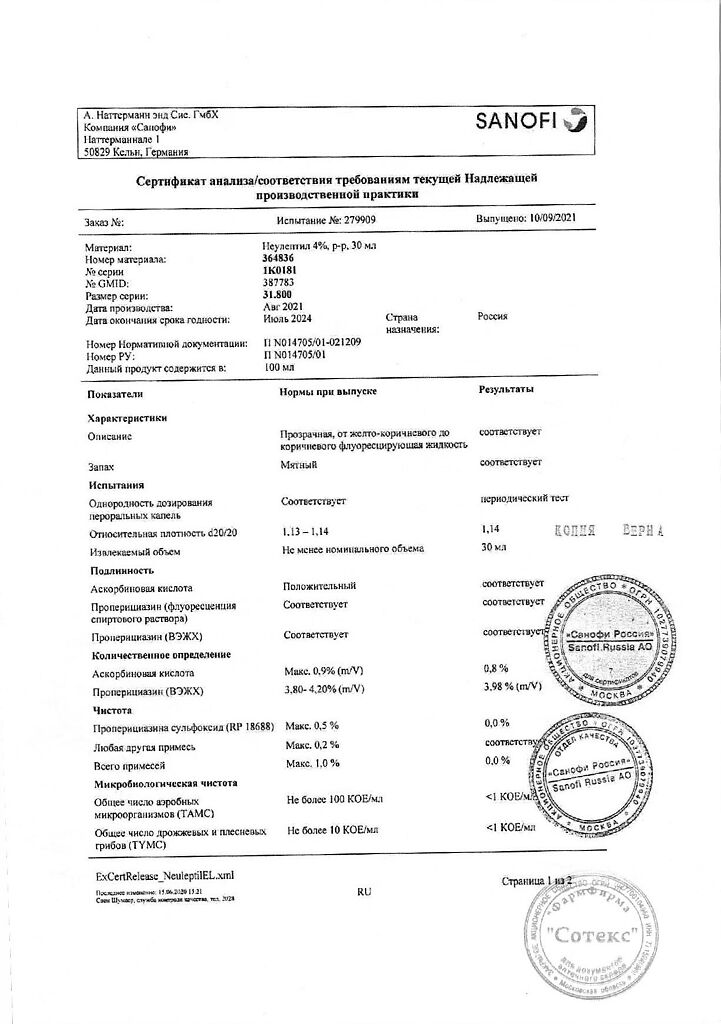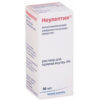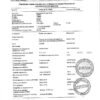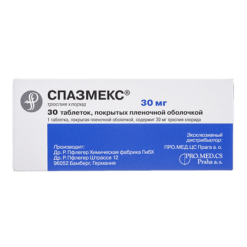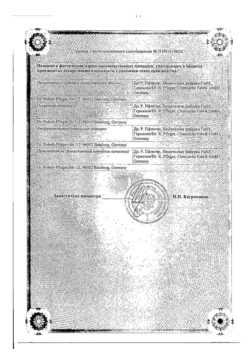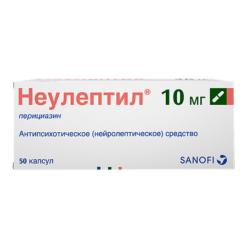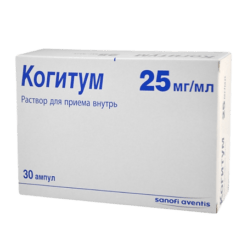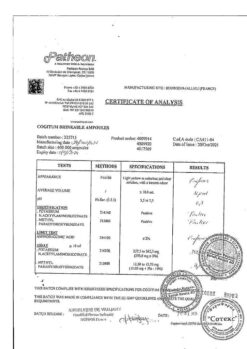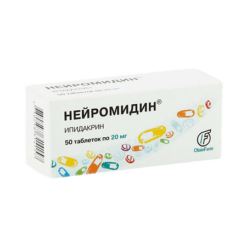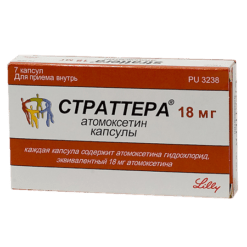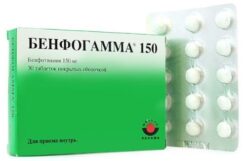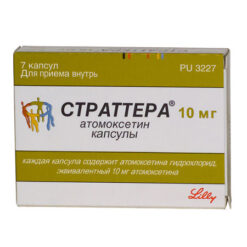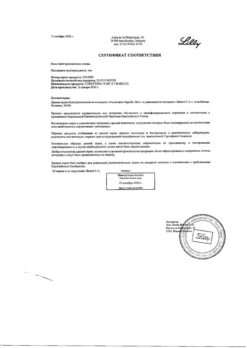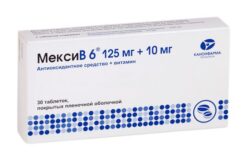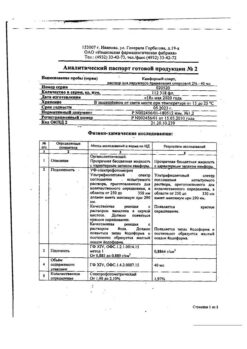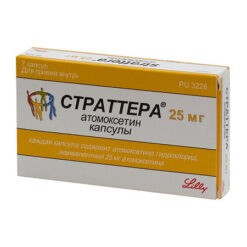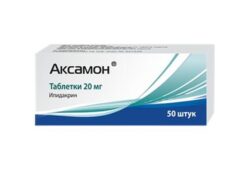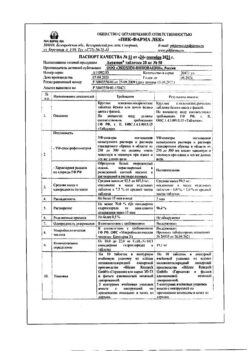No products in the cart.
Neulectil, 4% 30 ml
€8.73 €7.64
Out of stock
(E-mail when Stock is available)
Description
Neuleptyl is a neuroleptic of phenothiazine piperidine derivatives. It has a moderate antipsychotic and sedative effect without a stimulant component. It has adrenolytic, antispasmodic, parasympatholytic, antiemetic, hypothermic effects. It potentiates the activity of narcotic and non-narcotic-hanalgesics and sleeping pills.
It has a clear sedative effect, reduces aggressiveness, excitability and disinhibition. It has a hypnotic effect.
Because of its selective normalizing effect on behavior, Neuleptyl has been called a “behavioral adjuster.”
Pharmacokinetics
It is well absorbed from the gastrointestinal tract. After oral administration, plasma concentrations are lower than those after intravenous administration (first-pass effect through the liver) and vary widely.
The binding to plasma proteins is 90%. Intensely penetrates into tissues, as it easily passes through histohematic barriers, including the blood-encephalic barrier. It penetrates into breast milk.
Metabolized in the liver by hydroxylation and conjugation, has a “first pass” effect through the liver, is subject to hepatic recirculation.
T1/2 – 30 h. Elimination of metabolic products is longer. It is excreted by the kidneys, with bile and feces.
Indications
Indications
psychopathy
psychopathic-like states in schizophrenia
disturbance of emotions in epilepsy.
Pharmacological effect
Pharmacological effect
Neuleptil is an antipsychotic made from piperidine phenothiazine derivatives. It has a moderate antipsychotic and sedative effect without a stimulating component. It has adrenolytic, antispasmodic, parasympatholytic, antiemetic, hypothermic effects. Potentiates the activity of narcotic and non-narcotic analgesics, hypnotics.
It has a distinct sedative effect, reduces aggressiveness, excitability, and disinhibition. Has a hypnotic effect.
Due to its selective normalizing effect on behavior, Neuleptil is called a “behavior corrector.”
Pharmacokinetics
Well absorbed from the gastrointestinal tract. After oral administration, plasma concentrations are lower than with intramuscular administration (the “first pass” effect through the liver) and vary widely.
Communication with plasma proteins – 90%. Penetrates intensively into tissues, as it easily passes through histohematic barriers, including the blood-brain barrier. Passes into breast milk.
Metabolized in the liver by hydroxylation and conjugation, has a “first pass” effect through the liver, and undergoes hepatic recirculation.
T1/2 – 30 hours. Elimination of metabolic products is longer. Excreted by the kidneys, with bile and feces.
Special instructions
Special instructions
Neuleptil is prescribed with caution for epilepsy and parkinsonism.
Caution is also required when using the drug Neuleptil in patients suffering from cardiovascular diseases and in cases of severe impairment of liver and kidney function.
Elderly patients are at high risk of developing excessive sedation.
Neuleptil should be prescribed to car drivers with caution.
Active ingredient
Active ingredient
Periciazine
Composition
Composition
Active ingredient:
pericyazine;
Excipients:
sucrose,
ascorbic acid,
tartaric acid,
glycerol (glycerol),
peppermint leaf oil,
ethanol 96%,
caramel (E150d),
purified water.
Contraindications
Contraindications
Absolute:
angle-closure glaucoma;
urinary retention due to prostate diseases;
prostate adenoma;
Parkinson’s disease;
agranulocytosis, history of porphyria;
concomitant therapy with levodopa;
hypersensitivity to pericyazine.
The drug should be used with caution in patients with diseases of the cardiovascular system, renal and/or liver failure, and in elderly patients (excessive sedative and hypotensive effects may develop).
Side Effects
Side Effects
Neuleptil is usually well tolerated, however, in some cases the following adverse reactions may occur, the severity of which varies depending on the pharmacological properties of the antipsychotic.
Small initial doses:
Autonomic nervous system disorders: orthostatic hypotension; anticholinergic effects such as dry mouth, constipation, accommodation paresis, urinary retention.
Nervous system disorders: sedation or drowsiness, which are more pronounced at the beginning of treatment; apathy, anxiety, mood changes, depression.
Higher doses:
Nervous system disorders: early dyskinesia (spasmodic torticollis, oculomotor crises, trismus, etc.), tardive dyskinesia observed with long-term treatment; extrapyramidal disorders (akinesia, sometimes combined with muscle hypertonicity and partially eliminated by prescribing anticholinergic antiparkinsonian drugs; hyperkinesia-hypertonicity, motor agitation; akathisia).
Endocrine and metabolic disorders: impotence, frigidity; hyperprolactinemia: amenorrhea, galactorrhea, gynecomastia; weight gain; thermoregulation disorders; hyperglycemia, decreased glucose tolerance.
Less common and dose-independent reactions:
Skin reactions: allergic skin reactions; photosensitivity.
Hematological disorders: rarely – agranulocytosis (regular monitoring of a general blood test is recommended); leukopenia.
Ophthalmological disorders: decreased tone of the eyeballs; brownish deposits in the anterior chamber of the eye due to drug accumulation, usually not affecting vision.
Other:
Positive serological test for the presence of antinuclear antibodies, without clinical manifestations of lupus erythematosis.
Possibility of developing cholestatic jaundice.
Neuroleptic malignant syndrome: If unexplained fever develops, antipsychotic therapy should be discontinued immediately, as this may be one of the symptoms of neuroleptic malignant syndrome described with the use of antipsychotics, the clinical manifestations of which are pallor of the skin, hyperthermia and dysfunction of the autonomic nervous system.
Although this effect of Neuleptil, like other antipsychotics, is associated with individual intolerance, there are predisposing factors for its occurrence, such as dehydration or organic brain damage.
Among patients taking phenothiazine antipsychotics, isolated cases of sudden death, possibly caused by cardiac causes, as well as unexplained cases of sudden death have been reported.
Interaction
Interaction
Combinations of drugs whose use is contraindicated:
Levodopa: mutual antagonism between levodopa and neuleptil has been established. Extrapyramidal disorders should not be treated with levodopa during treatment with neuleptil (reduction or loss of neuroleptic activity).
If it is necessary to prescribe neuleptil to patients suffering from parkinsonism and taking levodopa, it is illogical to continue taking levodopa, since it increases mental disorders and cannot act on receptors blocked by antipsychotics.
Inappropriate combinations of drugs:
Alcohol: increased sedative effect; neuleptil: decreased reaction, which can be dangerous for persons driving vehicles and using machinery. Avoid drinking alcoholic beverages and medications containing alcohol.
Guanethidine and similar drugs: reducing the hypotensive activity of guanethidine by reducing the penetration of guanethidine into the fibers of the sympathetic nerves, which is associated with the action of the drug. Use other antihypertensive drugs.
Sultopride: increased risk of developing ventricular arrhythmias, in particular ventricular fibrillation.
Combinations of drugs that require caution when using:
Antacids (salts, oxides and hydroxides of magnesium, aluminum and calcium): decreased absorption of neuleptil in the gastrointestinal tract. If possible, the interval between taking antacids and neuleptil should be at least two hours.
Combinations of drugs that may have interactions that should be taken into account:
Antihypertensives (all): increased hypotensive effect and risk of orthostatic hypotension (cumulative effect). For guanethidine, see section “Inappropriate drug combinations”.
Other drugs that have a depressant effect on the nervous system are morphine derivatives. Most histamine H1 receptor blockers with sedative effects, barbiturates, benzodiazepines, anxiolytics that are not derivatives of benzodiazepines, clopidine and drugs containing it: an increase in the inhibitory effect on the central nervous system can be significant, in particular when driving vehicles and using other mechanisms.
Atropine and other anticholinergic drugs, antidepressants, imipramine derivatives, antiparkinsonian drugs with anticholinergic effects; disopyramide – the possibility of accumulation of undesirable effects associated with anticholinergic effects, such as urinary retention, constipation, dry mouth, etc.
Enhances the effects of anxiolytics, analgesics, anesthetics, hypnotics, ethanol, as well as the side effects of hepato- and nephrotoxic drugs. When used together with tricyclic antidepressants, maprotiline, MAO inhibitors, the sedative and anticholinergic effects may be prolonged and intensified; with thiazide diuretics, increased hyponatremia; with Li+, decreased absorption in the gastrointestinal tract, increased rate of excretion of Li+, increased severity of extrapyramidal disorders; early signs of Li+ intoxication (nausea and vomiting) can be masked by antiemetics effect of phenothiazines. When combined with beta-blockers, it enhances the hypotensive effect; there is a possible risk of developing irreversible retinopathy, arrhythmias and tardive dyskinesia. The administration of alpha and beta adrenergic agonists (epinephrine) and sympathomimetics (ephedrine) can lead to a paradoxical decrease in blood pressure. Amitriptyline, amantadine, antihistamines and other drugs with an anticholinergic effect increase anticholinergic activity.
Antithyroid drugs increase the risk of developing agranulocytosis. Reduces the effect of appetite suppressants (with the exception of fenfluramine). Reduces the effectiveness of the emetic effect of apomorphine. enhances its inhibitory effect on the central nervous system. Increases plasma concentrations of prolactin and interferes with the action of bromocriptine.
Overdose
Overdose
Overdose can cause severe extrapyramidal disorders and coma.
Treatment should be symptomatic and carried out in a specialized department.
Storage conditions
Storage conditions
Store in a dry place, protected from light, at a temperature not exceeding 25°C.
Shelf life
Shelf life
5 years.
Manufacturer
Manufacturer
A.Nattermann & Hsieh. GmbH, Germany
Additional information
| Shelf life | 5 years. |
|---|---|
| Conditions of storage | Store in a dry, light-protected place at a temperature not exceeding 25 ° C. |
| Manufacturer | A. Nuttermann & Sie. GmbH, Germany |
| Medication form | oral solution |
| Brand | A. Nuttermann & Sie. GmbH |
Other forms…
Related products
Buy Neulectil, 4% 30 ml with delivery to USA, UK, Europe and over 120 other countries.

